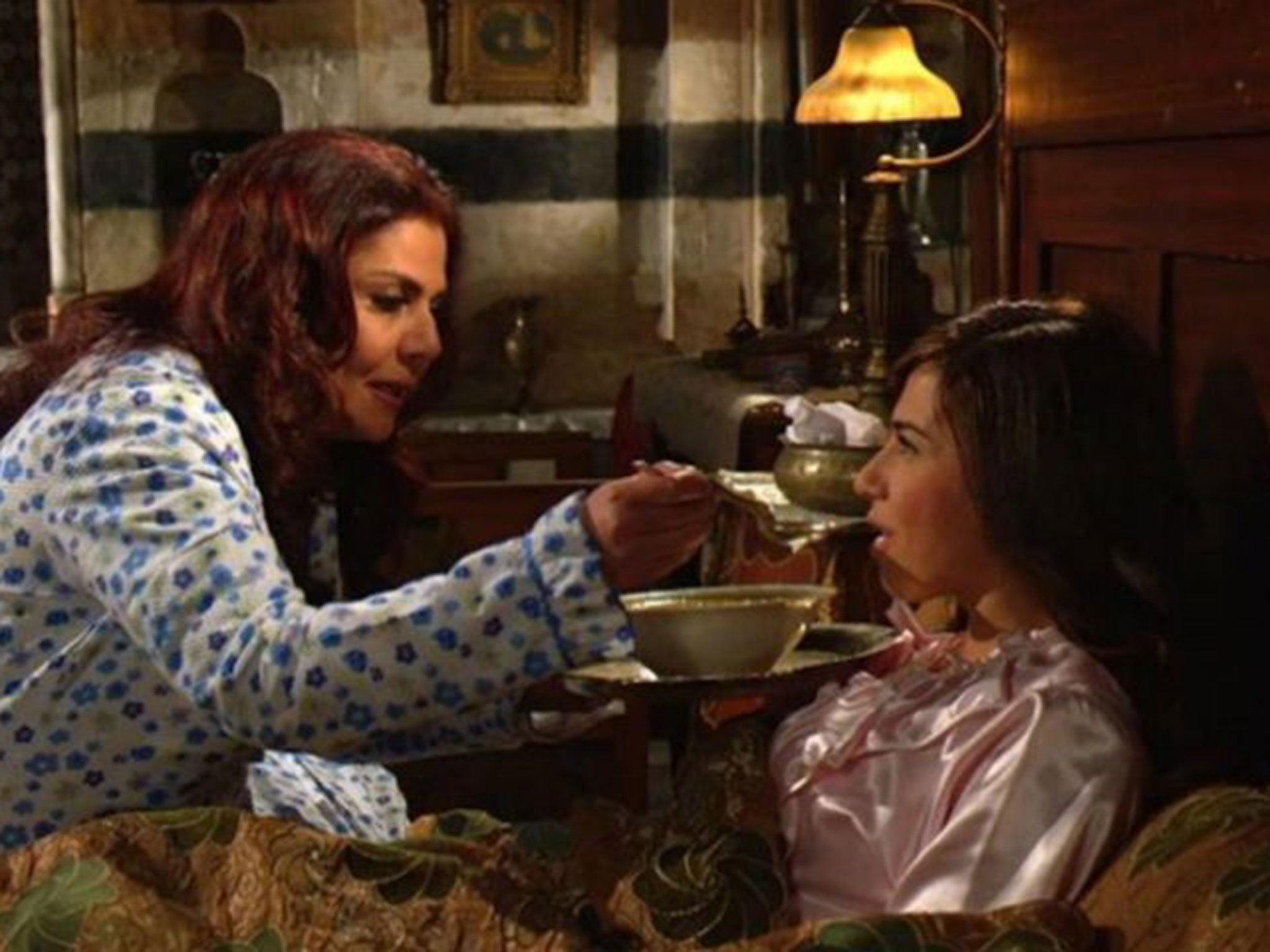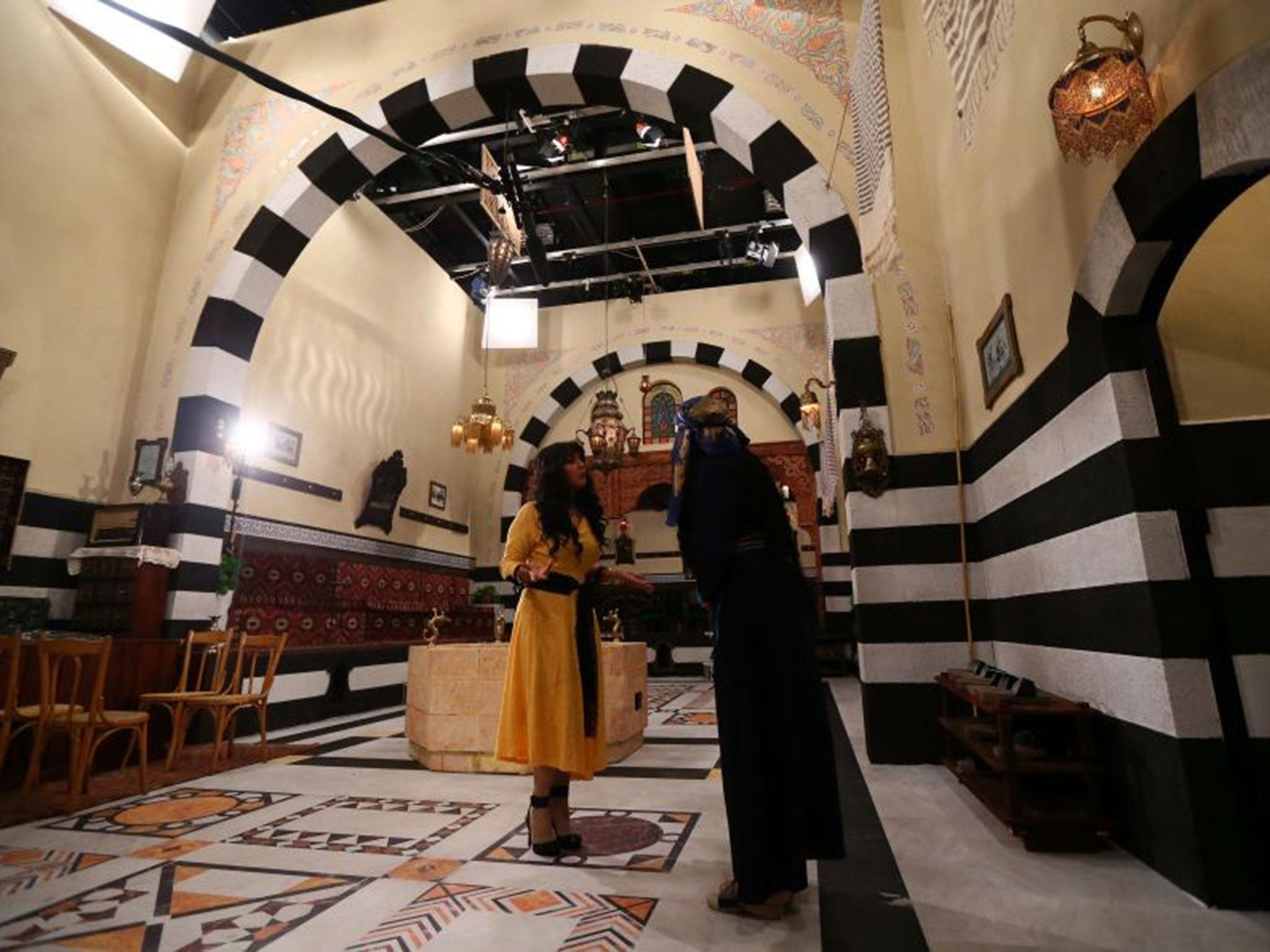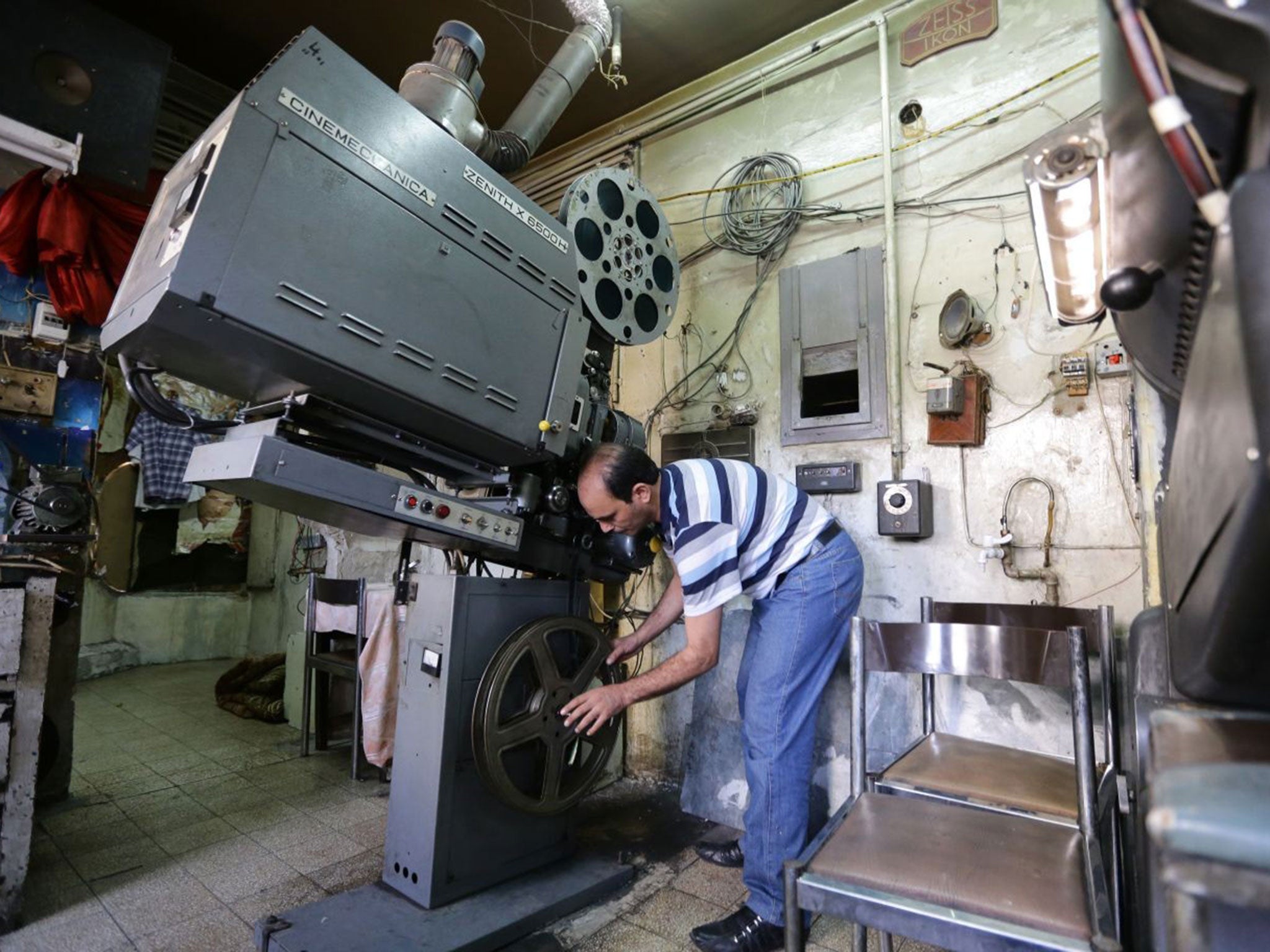Syrian drama industry battles on despite war
TV series are being filmed outside the country, but the influence of the regime is still being felt

Your support helps us to tell the story
From reproductive rights to climate change to Big Tech, The Independent is on the ground when the story is developing. Whether it's investigating the financials of Elon Musk's pro-Trump PAC or producing our latest documentary, 'The A Word', which shines a light on the American women fighting for reproductive rights, we know how important it is to parse out the facts from the messaging.
At such a critical moment in US history, we need reporters on the ground. Your donation allows us to keep sending journalists to speak to both sides of the story.
The Independent is trusted by Americans across the entire political spectrum. And unlike many other quality news outlets, we choose not to lock Americans out of our reporting and analysis with paywalls. We believe quality journalism should be available to everyone, paid for by those who can afford it.
Your support makes all the difference.Bab al-Hara, the smash hit Syrian soap opera, has returned to Arab television screens after a hiatus of three years during which civil war been ravaging the country.
The series focuses on life in old Damascus during the French mandate, and it is being shown not only in Syria, but also Lebanon, Egypt and other countries. In its heyday, the show had 50 million viewers. Yet its return, plagued by changes in set, producer and director, reveals how the Syrian film industry has suffered over the past few years. This year, the number of Syrian-produced soap operas plummeted to 20, almost half the number produced in 2010.
The civil war has divided the industry. In 2011, 300 actors signed the Milk Petition, requesting milk for the children of Dara'a, the birthplace of the uprising. In response, 20 production houses vowed never to work with them again. Those opposed to the regime moved away. Gulf channels used to be the primary buyers of Syrian drama before the revolution, but retreated after governments cut ties with Damascus. This led to the departure of hundreds of unemployed actors, producers and writers. As a result, dramas across the Arab world are being buoyed by Syrians.

Meanwhile, the Syrian soap opera industry continues to survive, albeit on a smaller scale. Sets have been destroyed, forcing productions to rely on alternative locations. Lebanese-Syrian co-productions have increased. Such co-operation has allowed Syrians to reflect on their situation without interference from the state. Rafi Wahbi, a Syrian writer now based in Lebanon, says the move allowed him to create his latest series, The Sweetness of the Soul. It tells the story of a journalist from Lebanon who is kidnapped by jihadists in Syria. The regime, opposition and even jihadists are humanised and criticised. The series is not broadcast in Syria, and this has allowed Wahbi creative freedom. He said: "For my career, no doubt it has evolved in the past two years, largely due to being able to enjoy greater freedom to write away from the censorship."
Despite series produced in Syria being subject to government censorship, they have long been a vehicle for airing criticism in the country. Now the medium is trying to find a way of dealing with the upheaval. In the past few years, a number of dramas have addressed political turmoil, as well as the effects of being a refugee. Many were produced from the safety of Lebanon. But in Syria, too, such issues are addressed. One of the dramas this year centres on the decision faced by many Syrians whether they should stay or leave.

"I don't call them soap operas," says Rebecca Joubin, a professor in Arab studies at Davidson College in North Carolina, "especially now, there is historical interpretation." She points to Sacrifice, a new series which is highly critical of the government. "Last year they were talking about the deceit of the uprising, but they weren't willing to talk about political opposition."
But as the government regains its grip on power, Syrian soap operas have largely followed suit. Historical dramas are still popular, but are now infused with the official line.
And viewers have noticed. Bab al-Hara had been a mainly political drama. "The show tries to send a message," said Ghadi Hallak, 32, a Lebanese fan of the show. "Before it was about opposition. Now it's only about Syrian unity."
Join our commenting forum
Join thought-provoking conversations, follow other Independent readers and see their replies
Comments